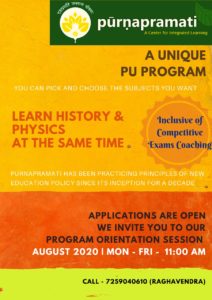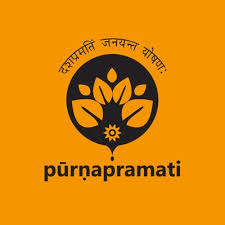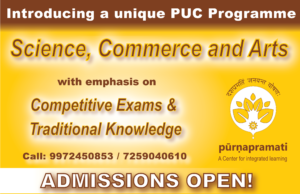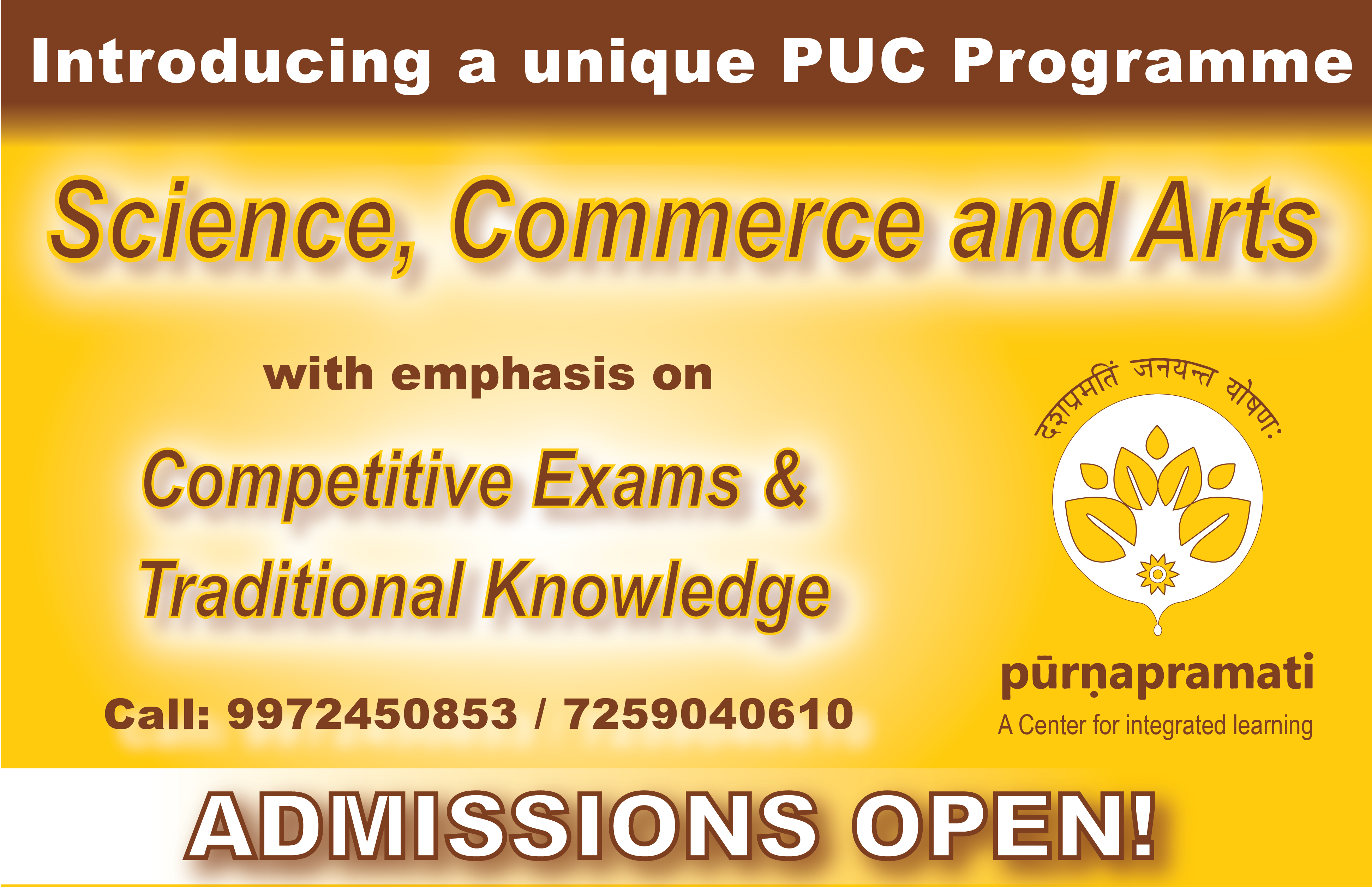Interschool Event
It is Purnapramati’s strong belief that education happens outside classrooms and schools as much or even more as it happens inside. Our Utsava series characterizes this belief. Purnapramati Utsava 2013 marked a special day on 5th Jan. The day had three inter-school events namely debate, impromptu drama and quiz at Jawahar Bal Bhavan, Cubbon Park. The events were chaired by highly revered and apt guests Sri Santosh Hegde and Smt Sita Anantasivan for Debate, Sri P Sheshadri and Sri Yashavant Sirdeshpande for the impromptu drama and Sri Radhakrishna Bhadti for the quiz. All the events focused on the theme ‘River as Life’. The thought behind organizing the program was not only to bring together children from different schools to spend time on our theme, but also from schools of different kinds (reputed international schools, traditional schools, modern schools and rural schools). We were able to achieve this due to the willing participation of National Public School, Koramangala, Mallya Aditi International School, Sri Kumaran Children’s Home, Purnaprajna Vidyapeeta, and Sri Radhakrishna Primary School of Hosanagara along with our school. Around 10 participant children and a teacher from each school and a few parents attended the program.
Of the three events organized, the first one was a debate on whether dams are needed or not, happened to be the most lively one. Two children from each school, one speaking for the dams and the other against, participated in the event. The topic was intimated to the schools about two weeks prior to the event. Children could use the language of their choice (Kannada or English). As their talks proceeded, the spectators attentively listened to the students who spoke on dams. Children speaking for dams spoke on the advantages of dams like production of electricity, using water for irrigations, availability of water during droughts, improvement of ground water levels, flood control, improvement in the country’s economy, recreation etc., while the children who argued against the spoke on the harms of dam construction – its adverse effects on the ecology, submergence of the surrounding villages and its residents becoming homeless, decaying of the submerged flora and the resulting emission of harmful gases, obstructed the flow of river, downfall of rich cultures, dispute between states etc. They also mentioned the alternatives for producing electricity like solar panels, windmills, the possibility of construction of smaller dams without any of the harmful effects etc.
The session came out to be very interesting and educative. The quiz session added to the productivity of the program. Many of the participants had known a lot of facts regarding rivers. Little children performing beautifully on quite a profound topic was a rare thing worthy of watching.
Interestingly, in the debate, the style of presentation varied largely between school to school but not really much within a school. Children of same school had a common approach in presenting their viewpoints. It was clear that school culture had a significant impact on a child.
Good comprehension, imagination, creativity, expression of ideas and thoughts etc., are a few things that every child is expected to have. Children confidently ventured to exhibit these talents when they were given topics to pick and act for the impromptu drama session. All the topics were related to our theme. The children had to pick a box which had a few dialogues, a few names and a few bits of stories based on which they had to develop a story, write dialogues, assign roles, rehearse, dress and enact, all on their own. A few theme related pictures were also displayed to help the kids and the time provided for preparation was just two hours. The children, again, could prepare in any language but had to do it without the aid of their teacher. Frankly speaking, it was quite a big task for children of their age (less than 11 years) to do all these on their own.
However, all teams came up with really nice skits and were successful in conveying their thoughts. Each skit had one or the other water related ethic. A few themes that came out in a skit were the following: Melting of glaciers to form rivers; Man heartlessly throws garbage into a river; River feels sad and helpless; A few concerned men protest and seek the help of politicians; Politicians stay least bothered; Poor protesters die protesting; Government at last awakens and passes orders to protect the river; The river gains its lost purity. Likewise, all dramas were trying to convey some really complex issues but within the comprehension of little children. Even though the performance was not on par to standard norms, this attempt of an impromptu drama by little kids seemed a true experiment worth exploring with improvisations, which can be a game changer in pedagogical tools.
One could notice the hard work and preparation of the children and the honest guidance of their teachers for the program. The idea of integration which brought together teachers and students from different backgrounds international-local, rural-urban, Kannada-English, tradition-modernity was a phenomenon by itself.
*** For more photos click here. ***



















